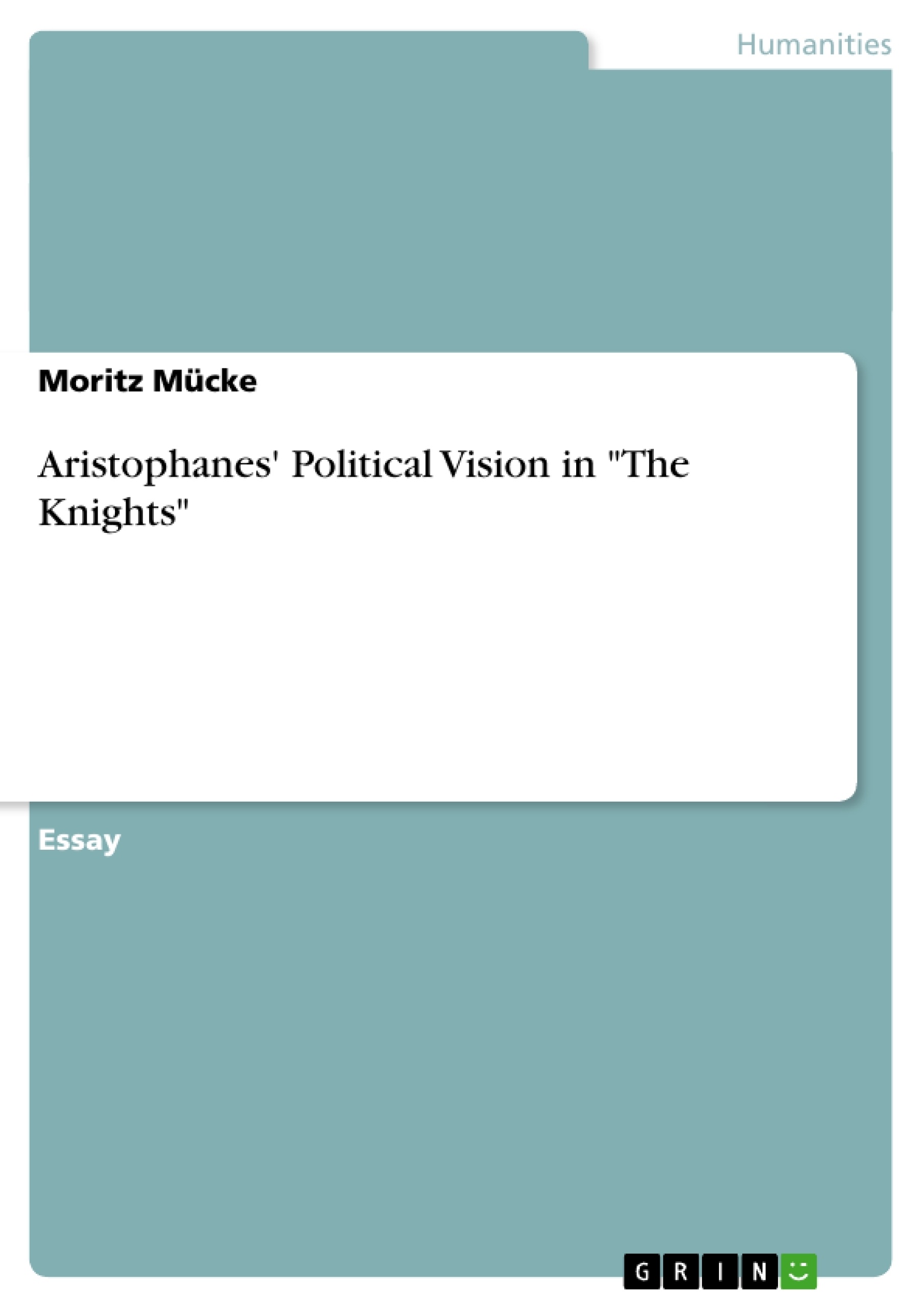Abstract or Introduction
In The Knights Aristophanes mocks his adversary Cleon and comments on the phenomenon of demagoguery in democratic Athens. The play, first produced in 424 B.C., entrusts a sausage-seller to rival the Paphlagonian, a thinly veiled Cleon, in flattering and gaining the approval of the demos.1 A thorough examination of the comedy serves to demonstrate that Aristophanes attacks not democracy itself but unscrupulous demagogues like Cleon and Hyperbolus as well as the tendency of the Athenian demos to intellectual laziness, which allows the practitioners of flattery to bribe the people with their own money.
- Quote paper
- Moritz Mücke (Author), 2014, Aristophanes' Political Vision in "The Knights", Munich, GRIN Verlag, https://www.grin.com/document/286184
Publish now - it's free
✕
Excerpt from
3
pages






















Comments